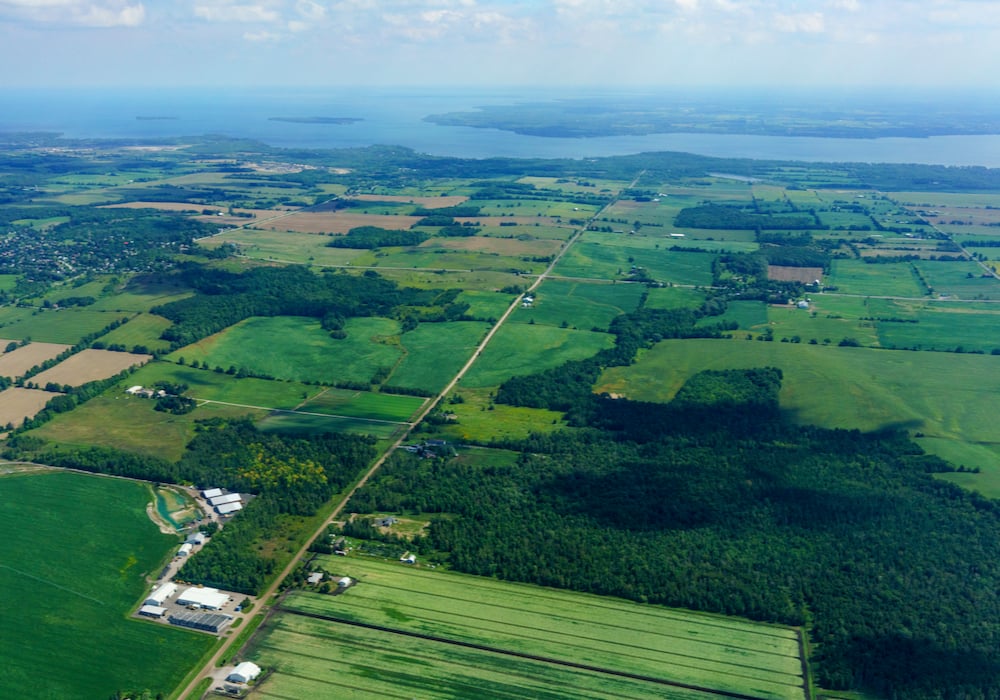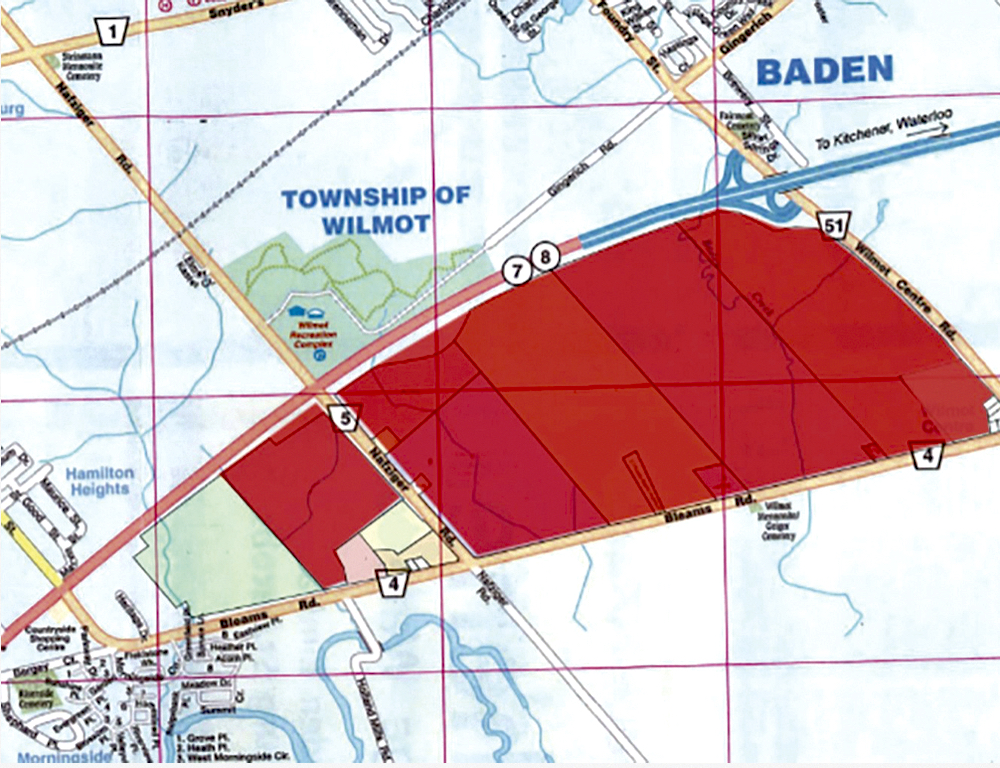Wilmot land expropriation questioned | Farmtario

Expropriation of land in Wilmot Township in the Region of Waterloo is a window into Ontario’s challenges as industrial and population growth clash in areas with high quality farmland.
Read Also


‘Beef rice’ seen as potential protein source for future
South Korean researchers have grown beef cells in rice grains in what they say is a major step toward achieving…
Farmers, landowners and residents are loudly protesting the use of prime farmland for industrial purposes and say they are fed up with political support for agriculture that disappears when it comes to land use and development.
Why it matters: There has been a flurry of land development policy changes from the provincial government in recent years and regional authorities are still trying to determine what those changes will mean.
Last month farmers and landowners were approached by a U.S.-based consulting firm, acting on behalf of the Region of Waterloo, to purchase 770 acres of prime agricultural land. The stated objective is to rezone this land for industrial use and embark on a significant development project, but the region will not disclose details.
The process by which regional authorities are trying to expropriate the land is closely guarded, despite comments from both local and provincial governments.
Farm organizations condemned the way the Region of Waterloo is pursuing its land acquisition goals.


photo:
Fightforfarmland.com
The Ontario Federation of Agriculture, for example, expressed frustration at the lack of community consultation, particularly in a jurisdiction that has generally had positive working relationships with rural landowners.
Christian Farmers Federation of Ontario President Ed Scharringa says farmers shouldn’t be put in this position, noting “they have been failed by the very system meant to protect them and our farmland.”
Jen Pfenning, president of the National Farmers Union and a farmer near the land in question, called the situation “farmland theft,” and questioned whether the region’s methods were legal under the Provincial Planning Statement.
Wilmot mayor and town councillors have also published a statement that acknowledges significant concern in the community about the lack transparency in the Region of Waterloo’s actions.
The township cited the need to maintain confidentiality between township representatives and regional government, and provided no further information.
The provincial government weighed in too, with Premier Doug Ford stating no specific company is involved in the expropriation. He said the Region of Waterloo’s engagement of a real estate company called Canacre, an American-owned firm based in the Greater Toronto Area, to pursue the land acquisition may not have been the best way to achieve its goals.
Few answers for property owners
Alfred Lowrick, Wilmot resident and spokesperson for the affected property owners, says others within the provincial government have been engaged.
Though no further information was gained, Kitchener-Conestoga Conservative MPP Mike Harris Jr. said he would continue voicing the community’s concerns. Opposition politicians have also raised the issue in the legislature.
Regarding the Township of Wilmot, Lowrick says there has been zero support from local representatives and have given “lip service at best.”
“The situation changes by the hour sometimes. We formed a number of committees to deal with this,” says Lowrick, referring to the wider body of Wilmot citizens trying to find answers and communicate their opposition.
“The lack of process is what’s maddening here. I get economic impact and development; it just seems like an odd spot… This will make it the City of Wilmot in no time. If the city and township want that, and citizens are informed and have a say, it’s OK.”
He also reiterated frustration at the short time property owners were given to make a decision.
“Farmers are looking at their fields thinking, ‘should I spend the money and put something in the ground?’ If they say ‘we need this land by August,’ there’s not much you’re going to harvest before August.”
The power to expropriate
Alex Ciccone is an associate with Garrod Pickfield LLP, a Guelph-based environmental, municipal and planning firm. He says lack of transparency in expropriation cases is not surprising.
This is particularly true when that expropriation is attempted through individual offers, and where each piece of an area matters for the overarching purpose behind the expropriation.
“Municipalities have very broad powers to expropriate. The main question is not can they take it, but how much you’ll get paid… The system is designed to take land for public purposes and reimburse for that,” says Ciccone.
He says the most pressing questions from his perspective are whether the land will be redesignated and how the region will go about doing that. Changing the land designation will significantly increase per acre values.
“I think what a lot of people fail to keep in mind is municipalities only exist because provinces deem them to. Municipalities and their powers are given and taken away by the province. The province has near unlimited powers to do what it wants.
“It could be the province gave direction they want to help municipalities do this kind of thing, and Waterloo has decided to take them up on it.”
Wayne Caldwell, professor of rural planning and development at the University of Guelph, says It’s surprising that the Waterloo region is the site of a land-use battle.
Given the region’s reputation for achieving significant community growth while respecting its urban boundaries, he questions whether the situation in Wilmot is connected to the province’s curtailing of regional powers in the last few years.
“Who is advising the region? Is it purely economic? For the farmers, it’s obviously a shock to them. Even if it means the annexation happens, let’s make sure they’re compensated really well.”
Historically, Caldwell says it’s not uncommon for zoning orders to require municipalities to acquire and hold land for development projects. Like Ciccone, he also says expropriation is not uncommon when developments are for the common good – road widening or expansion of a water treatment facility, for example.
The key difference in the Wilmot case is whether the expropriation is in public or private interest.
Source: Farmtario.com

